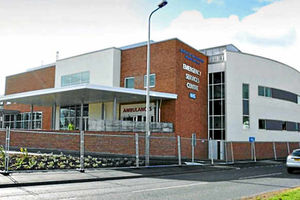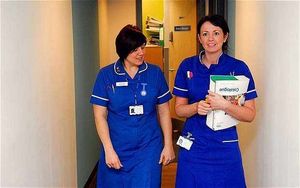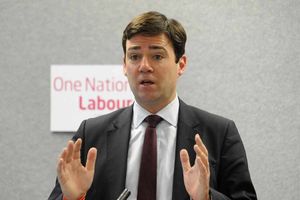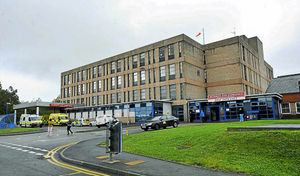Revealed: £14m cost of agency staff at West Midlands hospitals
Hospitals in the West Midlands forked out £14 million on agency staff in a year because of a shortage of nurses and other workers to fill shifts, it is revealed today.

Figures obtained by the Express & Star show that the bill for agency workers for the five NHS Trusts covering the Black Country and Staffordshire doubled in 2013/2014. It was £6.3m in 2012/13.
Tens of thousands of shifts at hospitals around the region are being filled by agency workers and the latest figures include a nurse who was paid more than £1,400 for a 12 hour shift on a bank holiday, working out to almost £120 per hour.
Bosses blame increasing patient numbers and staff sickness for the soaring spending which saw almost £6million shelled out by one trust alone.
The figures have promoted MPs and officials across the region to call for action to ensure enough money is being spent on permanent workers.

And Labour's Shadow Health Secretary has blamed the government for the situation in the region.
Andy Burnham MP said: "David Cameron's short-sighted plans are bad for the NHS and bad for our economy.

"He is making experienced nurses redundant only to waste millions on agency staff across the West Midlands.
"Thousands of nurse training places have been lost since the election too - storing up future workforce shortages."
Is the reliance on agency nurses a sign of wider problems in the NHS? Have your say in the comments below.
The Sandwell and West Birmingham Hospitals NHS Trust was the biggest spender in the Black Country and Staffordshire, paying out £5,828,000 on agency nurses to cover more than 31,000 shifts.
Staff sickness, an increase in patients suffering from dementia and the growing population had all contributed to the need for agency staff, according to Colin Ovington, director of nursing at the trust, which includes Sandwell Hospital in West Bromwich.
Mr Ovington said: "The size of the trust is one factor. We are all different sizes and serve different communities.
"We are seeing a growth in patients who are suffering from dementia. They can be at high risk of falling or hurting themselves and we have to think how to look after these people.
"Something that is growing in our hospitals is also the number of patients who require one-to-one care.
"Patients who are at a high risk of falling require one nurse to one patient and this is probably the biggest factor."
He said there are also more routine reasons for using agency staff, such as staff illness.
"NHS staff are the same as everyone else," Mr Ovington said. "They get the same illnesses that everyone else gets."
"If we have one nurse off for every ward then that becomes untenable."
To combat the problem many hospitals have set up their own staffing bank, a pool of workers who are able to cover shifts when needed but don't have any guarantee of work or the hours they would be needed and Mr Ovington said his trust was looking to increase the number of bank staff it used.
He added: "It is great that we have staff who are willing to work in a flexible way.
"We have been trying to grow the bank so they know how to operate by our policies and the care we want to see being delivered.
"We always go to our bank staff first, and then we would go out to an external service if they were not available."
He also said it was a problem nationally and that he thought there was no one thing that could solve it.
"There are a lot of needs to be sorted and it is down to local nuances," he said.
"The people who work here live locally to the trust and the bank staff we have are working in a flexible way because they have other commitments."
Adrian Bailey, MP for West Bromwich West, said the amount of money spent on agency staff at the trust would depends on patient flow.
He said: "It certain cases, it may be a cheaper way than employing full-time staff, but on the surface it does seem like a lot of money that is being spent.
"I expect financial managers will be looking into the cases.It's about managing your nursing staff in a way that matches the needs of the hospital, and if you are having to employ expensive staff then that should be looked at."
Walsall Healthcare NHS Trust spent £3,324,655 on agency staff in the same period. The cost had more than doubled compared to the £1,432,207 in 2012/13.

Mayor of Walsall Councillor Pete Smith said: "They are cutting back on staff then splash out the cash for these nurses that do not have the same insight, experience or in depth knowledge on patients and wards.
"There is currently not the economy for that being spent. "
Valerie Vaz, MP for Walsall South and a member of theGovernment's Health Select Committee, added: "Spending £3.3 million on agency nurses is not in the best interests of patients and it is not the best use of public money.
"The Government must urgently set out a strategy to address the shortage of nurses nationally. A report published in May by Health Education England showed that there is a 10 per cent vacancy rate for nursing posts in England this year.
"Hospitals should not be spending millions of pounds on agency staff when this money could be spent for more efficiently on employing permanent nursing staff."
In Staffordshire, the Mid-Staffordshire NHS Foundation Trust spent £2,711,750 in 2013/14, compared to £1.4 million in the previous 12 months.

A spokeswoman for the trust said they would not comment on the amount of money they had spent on agency staff.
Stafford Conservative MP Jeremy Lefroy said: "It is something we need to deal with. We don't want to go on having agency staff. They cost more for fewer people.
"We need to train more nurses in this country."
Dudley Group NHS Foundation Trust saw its bill triple, reaching £2,192,700.

Ian Austin, MP for Dudley, said: "After recent reports that Dudley hospitals are £1.38 million in debt, I'm really concerned to hear that they're spending millions on agency staff.
"The fact is local hospitals don't have the staff they need after the Tories squandered £3 billion on reorganising the NHS instead of frontline staff, losing 6,000 nurses as a result.
"Doctors, nurses and other staff are working flat out at Russells Hall but thanks to Tory health policies waiting times are up, cancelled operations are at their highest level in a decade and hospitals are going millions into debt."
Sharon Williams, a spokeswoman for Dudley Group NHS Foundation Trust, said: "Whilst there has been significant investment in the workforce, bank and agency staff are used to support wards when required and provide the best possible patient care.
"Despite the growth in substantive staff and bank usage, the need to keep all capacities open throughout the year and ensure safe staffing levels in wards has meant that agency costs continue to be incurred."
One trust which is cutting the amount of agency staff it uses it the Royal Wolverhampton NHS Trust that runs New Cross in Wolverhampton. It has used its own 'bank staff' to cover staffing issues since 2005.

It spent just £20,705 on agency staff last year, a reduction of more than £50,000 compared to the £73,983 spent the previous year.
Just 51 shifts at the trust were covered by agency staff.
Cheryl Etches, chief nurse at Royal Wolverhampton Trust, said: "The reason for this is we stopped using agency staff in 2005 in favour of our internal temporary staffing bank.

"This team can be called on with a few days or hours notice and ensures the flexibility we need."
Maxine Bygrave, from Wolverhampton Healthwatch, said she was pleased to see the trust sticking to its commitment.
She said: "They had plans to reduce the use of agency staff and that enables a conintuation of care and for them to be more clear in the quality of staff to provide treatment to patients.
"The trust has made that commitment and is clearly working towards maintaining that commitment."
But she said hospitals trusts should be given the resources they need by the Government to help them run without using agency staff.
She added: "If they had the means there would be no need for a reliance on agency staff. We know there is a national shortage of nurses but we need to look at it in a different way.
"If we do not need them then it is because the trusts are have the capacity of staff to provide the correct care."
But with hospitals like New Cross having to turn abroad to find staff to fill its permanent vacancies it seems the problem of temporary workers will not be solved any time soon.
It is seeking 170 trained nurse from as far a field as Spain and Portugal because of a shortage of qualified nurses in the UK.
Some 360 are trained every year at the University of Wolverhampton. Educations chiefs say they have 4,000 applications but they can't expand place numbers because the NHS will not let it take on any more due to the cost of training.
Health secretary Jeremy Hunt has vowed to recruit 3,700 new nurses to combat the shortage of nurses -and it will be hoped some of those will be heading to the Midlands.





